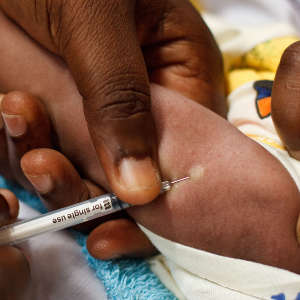Using AI to control energy for indoor agriculture
30 September 2024
Published online 29 August 2018
Defects in the SPPL2a gene hinder the immune system from fighting weak microbes.

MSMD is a rare inherited immunological disorder characterized by infection caused by weakly virulent mycobacteria, including the BCG vaccine against tuberculosis. The cellular mechanism behind this disorder in half of those affected has been unknown.
The team sequenced the genome of three patients suffering from MSMD of unknown cause and found two previously undiscovered mutations in the gene coding for signal peptide peptidase-like 2A (SPPL2a), an enzyme found at the cell membrane.
The mutations lead to deficiency in SPPL2a, resulting eventually in the development of the clinical symptoms associated with MSMD.
SPPL2a deficiency causes an accumulation of a toxic molecule in immune cells, which in turn leads to the depletion of a specific population of dendritic cells. These cells, representing the first line of immune defence, act mainly to alert and stimulate more specialized immune cells responsible for eliminating the microbes.
"Although it started in 1996, the field of MSMD is only in its infancy,” says the study’s co-lead investigator Jean-Laurent Casanova from Rockefeller University in the US.
Further studies are required to better decipher similar immunodeficiencies of unknown cause and improve the clinical care of affected patients.
doi:10.1038/nmiddleeast.2018.97
Kong, X.-F. et al. Disruption of an antimycobacterial circuit between dendritic and helper T cells in human SPPL2a deficiency. Nat. Immunol. 19, 973–985 (2018).
Stay connected: